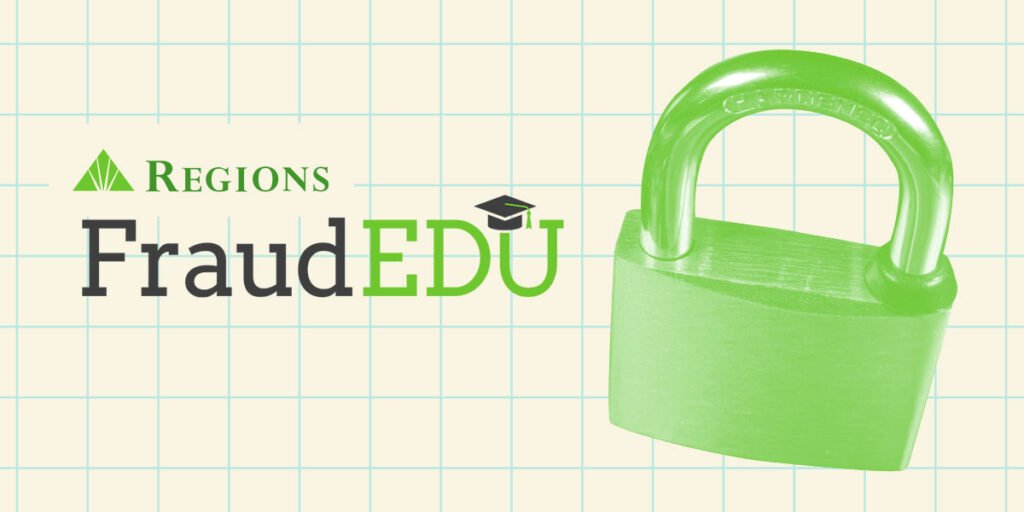
As the university term kicks off, many schools—elementary, Central, and High—have already welcomed students back. It’s a busy time.
Kids are getting used to their new schedules, classes, and teachers. Meanwhile, parents are grappling with their own sets of concerns. Who’s on drop-off duty tomorrow? Are the lunch accounts filled? When’s the tuition due? And do those heading off to college have enough funds?
It’s a lot to manage. And here’s the kicker: scammers know this too.
It’s prime time for them to exploit the chaos of a new school year, looking to slip between you and your money.
That’s why regional banks are honing in on fraud prevention info for schools throughout the year.
“We understand what people need to keep their finances secure,” says Jeff Taylor, a local expert in commercial fraud. “We’re parents as well. We receive the same kinds of offers and messages everyone else does. Our goal is to mix our financial know-how with experiences of fraud, hoping more folks can spot and steer clear of scams.”
For Parents: Safeguard Your Family
Watch out for fake websites and sellers. The start of the school year brings purchasing needs for supplies, books, and tech. One common pitfall is fake websites hawking school items at tempting prices, or phony bookstores advertising hard-to-find textbooks. “That’s where trouble can start,” warns Taylor. “It’s crucial to ensure you’re buying from reputable sites. Scams thrive on this because you might end up with nothing.”
Be mindful of social media. While social platforms are great for connecting, not everyone there has your best interests at heart. “It’s easy to get deceived,” says Kimberly Reese from the customer advocacy team focused on local fraud. “The nature of social media is connecting with people, but not all those connections are genuine.” So, be cautious with back-to-school offers on these platforms and avoid exposing sensitive personal info.
Keep an eye on your financial accounts and report anything suspicious. Regularly check your bank statements or, even better, use your banking app to set up notifications. By activating transaction alerts, you can stay informed in real-time. If you notice strange emails, calls, or websites, report them to the Federal Trade Commission or your local Consumer Protection Agency. Quick reporting can help avert further issues for yourself and others.
For Older Students: Guard Yourself as You Head Back
Scammers often target the blend of excitement and anxiety that comes with the school season, offering phony financial aid, bogus scholarships, or fraudulent housing deals.
Be wary of financial aid scams. Always approach offers for scholarships, grants, or loans that ask for upfront fees or personal info—like your Social Security number or banking details—with caution. Before moving forward, verify your financial aid options through your school’s official channels or trusted scholarship websites.
Protect your digital identity. Your online accounts—email, student portals, and financial services—house sensitive information. Use strong, unique passwords and enable two-factor authentication when possible. Avoid reusing passwords. Be alert to phishing scams, which often come as fraudulent emails or messages pretending to be from schools or banks asking for account verification or personal data. If uncertain, it’s wiser to visit the official site directly.
Regularly monitor your finances. Just as parents are advised to keep an eye on their expenses, students should do the same, especially if they’re new to managing their own accounts. Set up bank alerts for real-time transaction notifications to quickly spot any suspicious activity.
Report any strange occurrences immediately. If you receive odd emails, phone calls, or unexpected fees, it’s crucial to report these to your school’s fraud office, your bank, or the Federal Trade Commission right away. Timely reporting can help protect you and others from becoming victims.
Stop. Verify. Confirm.
Before acting on any request for money, personal information, or urgent actions—especially those received via email, text, or phone—take a moment to pause. Call your organization using a verified number to confirm the legitimacy of any requests. “If something feels off, trust your instincts. Before making any payments or changing existing ones, apply some internal checks,” advises Taylor. This simple precaution can help you dodge costly mistakes and safeguard your family against fraud.
Stay alert and informed, allowing you to focus on your studies while keeping those scammers at bay.







